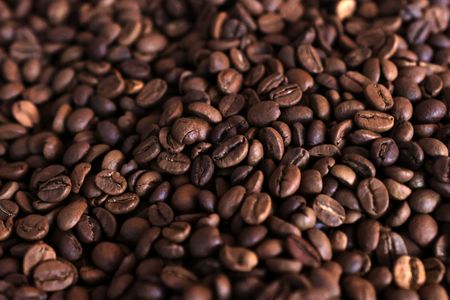By Maytaal Angel
LONDON (Reuters) – A surge in the cost of trading arabica coffee on the ICE exchange has exacerbated a rally that has already driven prices for raw, unroasted beans to 14 successive records over the last three weeks, traders and industry analysts said.
ICE, whose contracts are used as a benchmark to price physical coffee around the world, ultimately driving the price to the final consumer, said earlier this week it was again raising margins. These are down-payments that its customers are required to pay to protect against trading losses.
On its most traded arabica contract, the exchange raised margins by 10% to $10,410 per contract this week – nearly double levels a year ago – meaning that to trade around 100 metric tons of arabica using the contract requires an initial daily payment of around $62,000.
Even more would be needed if the position goes into the red to ensure there are sufficient funds to cover potential losses.
For a trader taking a short futures position of just 100 tons, in a market where prices have risen even faster than the margins – nearly doubling in the last six months – the required payments could total hundreds of thousands of dollars per trader.
Many traders hold short positions – effectively bets on price falls – that are much larger than 100 tons, and demands for more payments during the price rally have forced those with tight credit lines to liquidate their positions.
The main way to do this is by buying back future contracts, which in turn sustains higher prices on the ICE exchange.
NO QUICK FIX
A Europe-based trader at one of the world’s biggest coffee trading houses said “billions” were being demanded for margin calls and he saw no sign of the situation improving in the near term.
Speaking on condition of anonymity because he was not authorised to speak publicly, he said there was a chance the market would ease when export flows from Brazil’s new crop accelerate later this year.
Traders typically hold short futures positions in order to hedge or lock in prices and protect themselves against the risk that their physical commodity drops in value by the time it is delivered to them.
In a rallying market, the strategy unravels if they cannot sustain losses on their short position until their increasingly valuable physical commodity is delivered and they are able to sell it.
Stung by exactly this situation, Brazil-based coffee traders Atlantica and Cafebras late last year filed for court-supervised debt restructuring – a judicial move that, if it fails, can be followed by bankruptcy.
Analysts say there is a high risk other traders will find themselves lacking cash.
“Traders’ credit lines are very, very stretched in a $4/lb market. It means they aren’t hedging. So every time a roaster or speculator buys (futures), there’s no-one to sell to them, so the market goes crazy,” a coffee analyst who works for another leading global coffee trade house.
(This story has been refiled to correct the name of the trader to Cafebras, not Cafebra, in paragraph 12)
(Reporting by Maytaal Angel; editing by Barbara Lewis)










